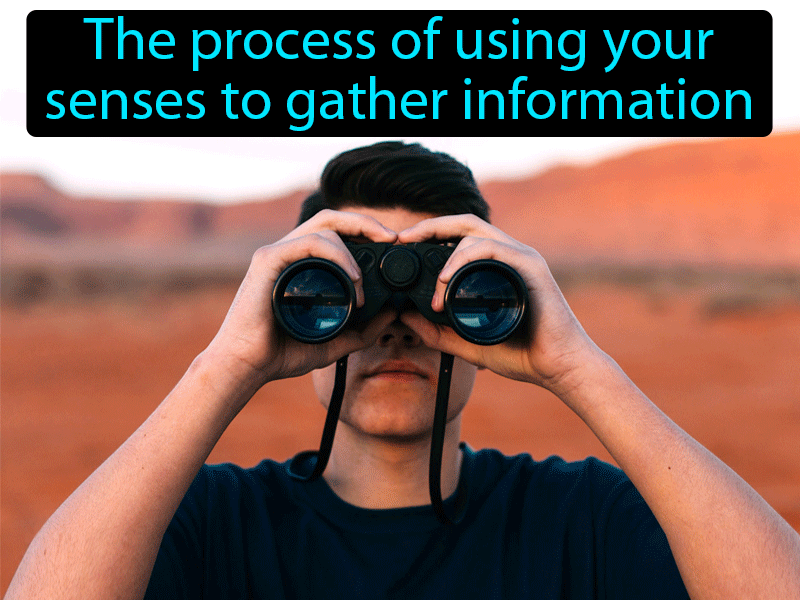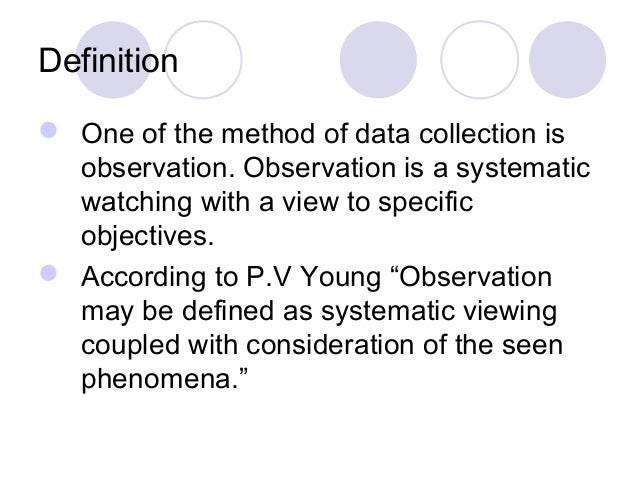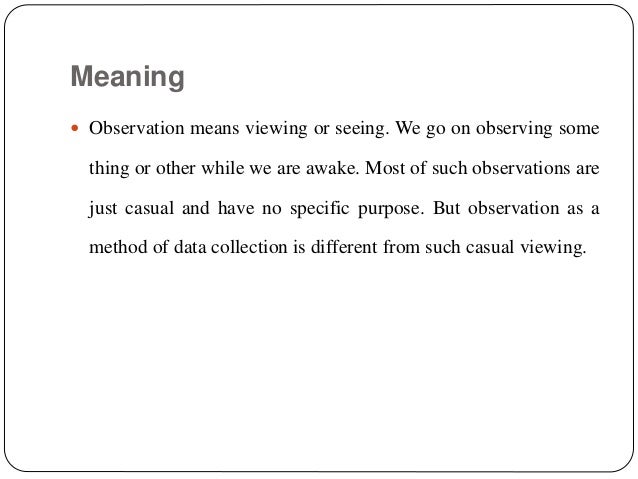

#Definition of observation portable
It can be helpful to carry around a portable journal with you so that you can write or draw the things you notice. Instead of listening to music on your walk or commute to work, try paying attention to the sounds and sights to see what you notice. Avoid distractionsĮlectronic devices, busy surroundings or even your own thoughts can easily distract you from observing the places and people around you. For example, you might immediately notice the computer, chair and desk in a colleague's office, but try to pick out details about the paint, items on the desk, pictures on the walls and even the carpeting. There are usually big or attention-grabbing things in your environment, but try to move past these objects to find some of the smaller, less noticeable attributes. Take some time each day to pause what you're doing and try to pick out as many details as you can from your surroundings. You can follow these steps to improve your observation skills: This skill plays a strong role in productivity, but it's also key to effective observation because it allows you to recognize small details and adjust your actions to accommodate them. Attention to detailĪttention to detail is the ability to approach and accomplish tasks with thoroughness and accuracy. Critical thinking, or the ability to analyze context and facts so that you can thoroughly understand a topic or problem, requires you to remain objective as you identify issues and develop effective solutions. Your ability to think critically has a significant influence on your observation skills. By identifying the emotional state of others, you can better recognize how you should interact with and respond to those around you. Though this skill's primary benefit is that it helps you connect with those around you and build meaningful relationships, it's also a powerful tool of observation. The ability to evaluate and regulate your own emotions as well as recognize and empathize with the emotions of others is a skill that is known as emotional intelligence. As a result, you can engage in the conversation and recall its details without needing to ask the speaker to repeat information.Īside from improving your relationships and interpersonal skills, active listening ensures that your verbal and written communication is more accurate. You do this by paying attention to the speaker's verbal and nonverbal cues, such as tone of voice, body language and facial expressions. When you possess this skill, you can dedicate your focus to the person speaking, comprehend their message and respond in an appropriate and thoughtful manner. Perhaps one of the most important aspects of effective communication is the ability to actively listen. Observation skills are dependent on several other abilities and attributes, such as: Related: 10 Top Job Skills for Any Industry: Transferable Skills You Need Examples of observation skills

This practice is often associated with mindfulness because it encourages you to be present and aware of the details of your daily life. Observation skills refer to the ability to use all five of your senses to recognize, analyze and recall your surroundings.


In this article, we explain what observation skills are, explore how you can improve them and utilize them in the workplace and provide ways to highlight these skills during the application process. Developing your observation skills makes you a more effective communicator and employee, which is why many employers look for candidates that possess this ability. When you're applying for jobs, it's imperative that you adequately communicate your strengths and highlight skills that are beneficial for the role you're seeking.


 0 kommentar(er)
0 kommentar(er)
